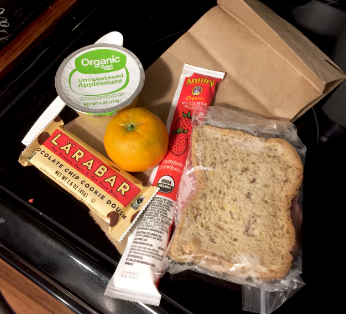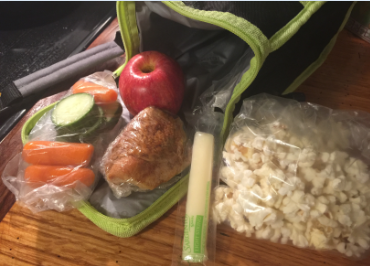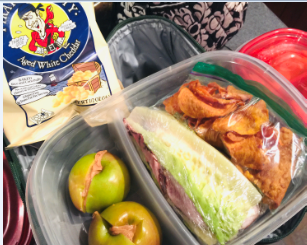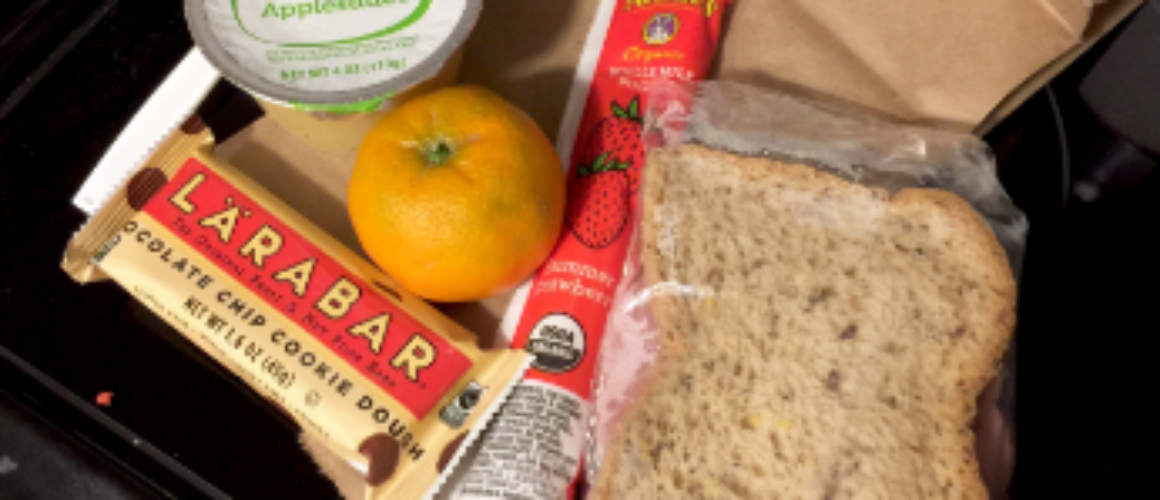Why Healthy Lunches Make All the Difference
Introduction – Leah is the busy mom of 7 children focused on teaching her children how to make healthy food decisions. Her approach is straight-forward and she gives some great ideas on how to pack healthy lunches. I hope you enjoy her blog post!
“Why Healthy Lunches Make All the Difference”
Written by my guest blogger – Leah Morency
Let’s start with the hard reality when it comes to packing school lunches: the struggle is real! Successfully filling your young one’s lunch box with foods in all the colors of the rainbow, seems like an impossible dream for moms and dads, but it doesn’t have be that way. We can take back our kid’s lunch time appetite, one bite at a time. Today, thankfully, safe and healthy lunch options are gaining momentum against their nutrient void and processed counterparts. For our kid’s physical, mental, and emotional health, now and into their adulthood, taking back lunch is absolutely worth our effort.
Advertisements and fake food products from the grocery aisles scream that we don’t have time or money for real food and that we can’t do what’s best for our kids. At the same time, they offer us this sorry solution: factory packaged, processed, chemically preserved, sugary-syrup sweetened, artificially colored, and artificially flavored lunch box convenience foods. Sadly these foods fail to provide the nutrients a healthy growing child needs.
Lunchables are the perfect example of well marketed convenience food that is full of the toxins we are trying to avoid. Kids generally go nuts for these packaged snack packs that hold the illusion of a balanced meal while delivering mega doses of preservatives, additives, sugar, sodium, and a long list of artificial sweeteners.

So, why is it so important for us to overcome this challenge? Why not just give in and let them have their fun at lunch?
Well, here is the rub: physical, mental, and emotional health in adult hood is founded on the habits learned in childhood. Physically, kids bodies absorb much more of the food content they consume because they are growing, making all of these questionable ingredients more impactful to every area of their physical development. Every health problem linked to poor nutrition and obesity comes into play if poor eating habits are left unchecked.
Kids are under pressure, mentally and emotionally, to perform their best academically, while also being expected to balance social interactions, peer relationships and a broad range of societal expectations. A diet that keeps their blood sugar in check while providing a steady stream of energy and nutrients lays the foundation for a smooth day of learning. Sugar highs bring sugar lows, and with that low, a young person’s emotional resiliency, and their ability to exercise their best judgement, is compromised. Behavioral issues with teachers and peers can negatively impact your child’s daily learning experience, attitude towards school, and over all learning potential!
Turning your energy to preparing home packed lunches that are fresher, and better able to meet your child’s specific taste and nutritional needs, is the best place to create solutions and make the difference for him or her.
First, Empty Calories Alert! Kids can quickly fill up on empty sugar calories, and then loose an appetite for the real sources of nutrition you have worked hard to pack into their meal! Besides the obvious lunchables, cookies, candies, donuts, and sweets to avoid, beware of these hidden sources of empty calories:
- 100% fruit juices, and really almost all juices period: they simply add more sugar than nutrients.
- Yogurt squeezes that are sweetened with fructose corn syrup: they cease to be healthy at the amounts of sugar added.
- Deli Lunch meat: most contain added sugar and are full of preservatives!
- Crackers, pretzels and snack bags: made from processed grains that are high in starch, these convert to sugar calories when eaten, raising blood sugar levels that can contribute to a post lunch sugar low!
- Fruit chewy snacks: again, more concentrated sugar, with no nutritional value, stealing the healthy appetite meant to be satisfied with nutritionally rich foods.
- Potato Chips: standard white potato chips are high in calories, salt, and fat but low in nutrients.
Instead provide healthy alternatives for your kids!


